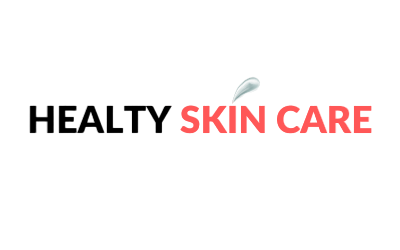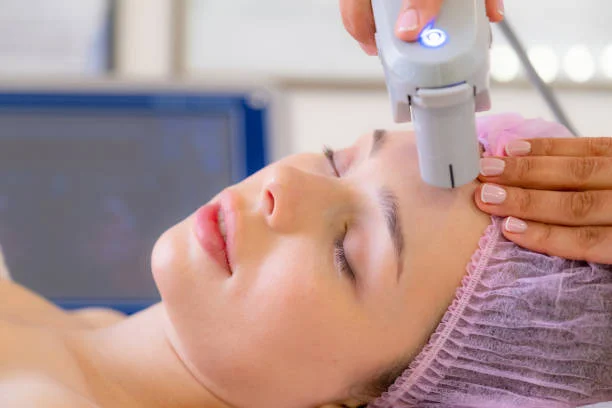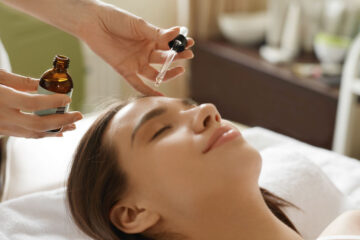Menopause is a significant milestone in every woman’s life, marking the end of her reproductive years. While it brings about many physiological changes, one aspect that often gets overlooked is the impact on skin health. Hormonal shifts can leave your skin dry, dull, and more prone to wrinkles. But fear not! This guide aims to empower you with practical tips and valuable insights to keep your skin glowing through menopause.
In this blog post, we’ll explore how menopause affects your skin, offer expert advice on skincare routines, and highlight the best products to use during this phase. Whether you’re a skincare enthusiast or simply looking to maintain a healthy complexion, read on to discover how to nurture and care for your skin during menopause.
Understanding Menopause and Skin Changes
The Hormonal Rollercoaster
Menopause involves a decline in estrogen levels, which significantly impacts your skin. Estrogen helps to keep your skin thick, hydrated, and elastic. Lower levels can lead to thinner, drier skin and the breakdown of collagen, which is responsible for skin firmness.
Common Skin Issues During Menopause
Understanding the common skin issues during menopause can help you address them more effectively. These include dryness, sagging, increased sensitivity, and a higher likelihood of age spots and wrinkles. Being aware of these changes allows you to tailor your skincare routine to meet new needs.
Why It’s Important to Adapt Your Skincare Routine
Your pre-menopausal skincare routine may not cut it anymore. The changes in your skin’s needs mean that you need to adapt your routine to maintain radiant and healthy skin. Awareness and adjustment are the first steps towards glowing skin during menopause.
Hydration is Key
The Importance of Moisture
One of the most noticeable changes during menopause is skin dryness. Hydration is crucial because dry skin can exacerbate the appearance of fine lines and wrinkles. Aim to keep your skin moisturized both internally and externally.
Drinking Enough Water
Hydration starts from within. Drinking at least eight glasses of water a day keeps your skin hydrated from the inside out, helping to maintain its elasticity and glow.
Choosing the Right Moisturizer
Select a moisturizer that suits your skin type and addresses the issue of dryness. Look for ingredients like hyaluronic acid, glycerin, and ceramides, which are known for their hydrating properties.
Boosting Collagen Production
Why Collagen Matters
Collagen is the protein that keeps your skin firm and elastic. Menopause leads to a decline in collagen production, making skin saggy and less youthful-looking.
Foods That Promote Collagen
Incorporate collagen-boosting foods into your diet. These include bone broth, fish, chicken, egg whites, and citrus fruits. These foods provide the necessary building blocks for collagen synthesis.
Topical Treatments
Consider using topical treatments like retinoids and peptides. These ingredients can help stimulate collagen production, improving skin texture and reducing the appearance of fine lines.
Sun Protection
The Role of Sun Exposure
Sun exposure is one of the leading causes of premature aging. During menopause, your skin becomes more vulnerable to UV damage, making sun protection crucial.
Choosing the Right Sunscreen
Opt for broad-spectrum sunscreens with an SPF of at least 30. Ingredients like zinc oxide and titanium dioxide are effective in providing protection without irritating sensitive skin.
Incorporating Sun Protection into Your Routine
Make sunscreen a non-negotiable part of your daily skincare routine. Apply it every morning, and reapply every two hours if you’re spending time outdoors.
The Magic of Antioxidants
Fighting Free Radicals
Antioxidants neutralize free radicals, which can cause cellular damage and accelerate aging. Menopausal skin can benefit greatly from antioxidant-rich skincare products.
Vitamin C Serum
Vitamin C is a powerful antioxidant that brightens the skin, boosts collagen production, and fights free radicals. Incorporate a Vitamin C serum into your morning routine for best results.
Other Potent Antioxidants
Other antioxidants like Vitamin E, niacinamide, and green tea extract are also beneficial. They help protect your skin from environmental stressors, keeping it looking youthful and vibrant.
Gentle Cleansing
Importance of Gentle Cleansing
During menopause, your skin can become more sensitive. Using harsh cleansers can strip your skin of natural oils, exacerbating dryness and irritation.
Choosing the Right Cleanser
Opt for a gentle, hydrating cleanser that removes impurities without disrupting the skin’s moisture barrier. Ingredients like aloe vera, chamomile, and cucumber are soothing and effective.
Cleansing Routine
Cleanse your face twice a day—morning and night. This helps to remove dirt, oil, and makeup, preparing your skin for the next steps in your skincare routine.
The Role of Nighttime Skincare
Nighttime Recovery
Your skin repairs itself while you sleep, making nighttime the perfect opportunity to use potent treatments and moisturizers. A good nighttime routine can make a significant difference in your skin’s appearance.
Night Cream and Serums
Invest in a high-quality night cream and serums that focus on hydration and anti-aging. Ingredients like retinol, hyaluronic acid, and peptides work wonders overnight.
Consistency is Key
Consistency is essential in skincare. Stick to your nighttime routine religiously to see long-term benefits in your skin’s health and appearance.
Incorporating Facial Oils
Benefits of Facial Oils
Facial oils provide an extra layer of hydration and nourishment. They are particularly beneficial for dry, menopausal skin.
Choosing the Right Facial Oil
Look for oils like rosehip, argan, and jojoba. These oils are lightweight, non-comedogenic, and packed with essential fatty acids and antioxidants.
How to Use Facial Oils
Apply a few drops of facial oil after your moisturizer to lock in hydration. You can also mix a drop or two with your foundation for a dewy finish.
Regular Exfoliation
The Importance of Exfoliation
Exfoliation removes dead skin cells, promoting cell turnover and revealing fresher, brighter skin underneath. It also helps your skincare products absorb better.
Types of Exfoliants
Choose between physical exfoliants (like scrubs) and chemical exfoliants (like AHAs and BHAs). Chemical exfoliants are generally gentler and more effective for mature skin.
Exfoliation Routine
Exfoliate 1-2 times a week. Over-exfoliating can irritate your skin, so it’s essential to find a balance that works for you.
Maintaining a Healthy Diet
Diet and Skin Health
What you eat has a direct impact on your skin. A balanced diet rich in vitamins and minerals promotes healthy, glowing skin.
Foods to Include
Incorporate plenty of fruits, vegetables, lean proteins, and healthy fats into your diet. Foods high in Omega-3 fatty acids, like salmon and walnuts, are particularly beneficial for skin health.
Supplements
Consider taking supplements like Vitamin D, Omega-3, and collagen peptides to support your skin from within. Always consult with a healthcare provider before starting any new supplement regimen.
Managing Stress
Stress and Skin
Stress can exacerbate skin issues like acne, dryness, and sensitivity. Managing stress is crucial for maintaining healthy skin during menopause.
Stress-Reduction Techniques
Practice stress-reduction techniques such as yoga, meditation, and deep-breathing exercises. Regular physical activity also helps manage stress and promotes overall well-being.
Self-Care Rituals
Incorporate self-care rituals into your daily routine. Whether it’s a relaxing bath, a skincare mask, or a hobby you love, taking time for yourself can significantly impact your skin’s health.
Conclusion
Navigating skincare during menopause doesn’t have to be daunting. By understanding the changes your skin is going through and adapting your routine accordingly, you can maintain a radiant, healthy complexion. Remember, hydration, sun protection, and the right skincare products are your best allies.
If you’re looking for personalized advice, consider booking a consultation with one of our skincare experts. They can help tailor a routine that meets your unique needs and keeps your skin glowing through every phase of life. Here’s to radiant skin and confidence through menopause and beyond!





